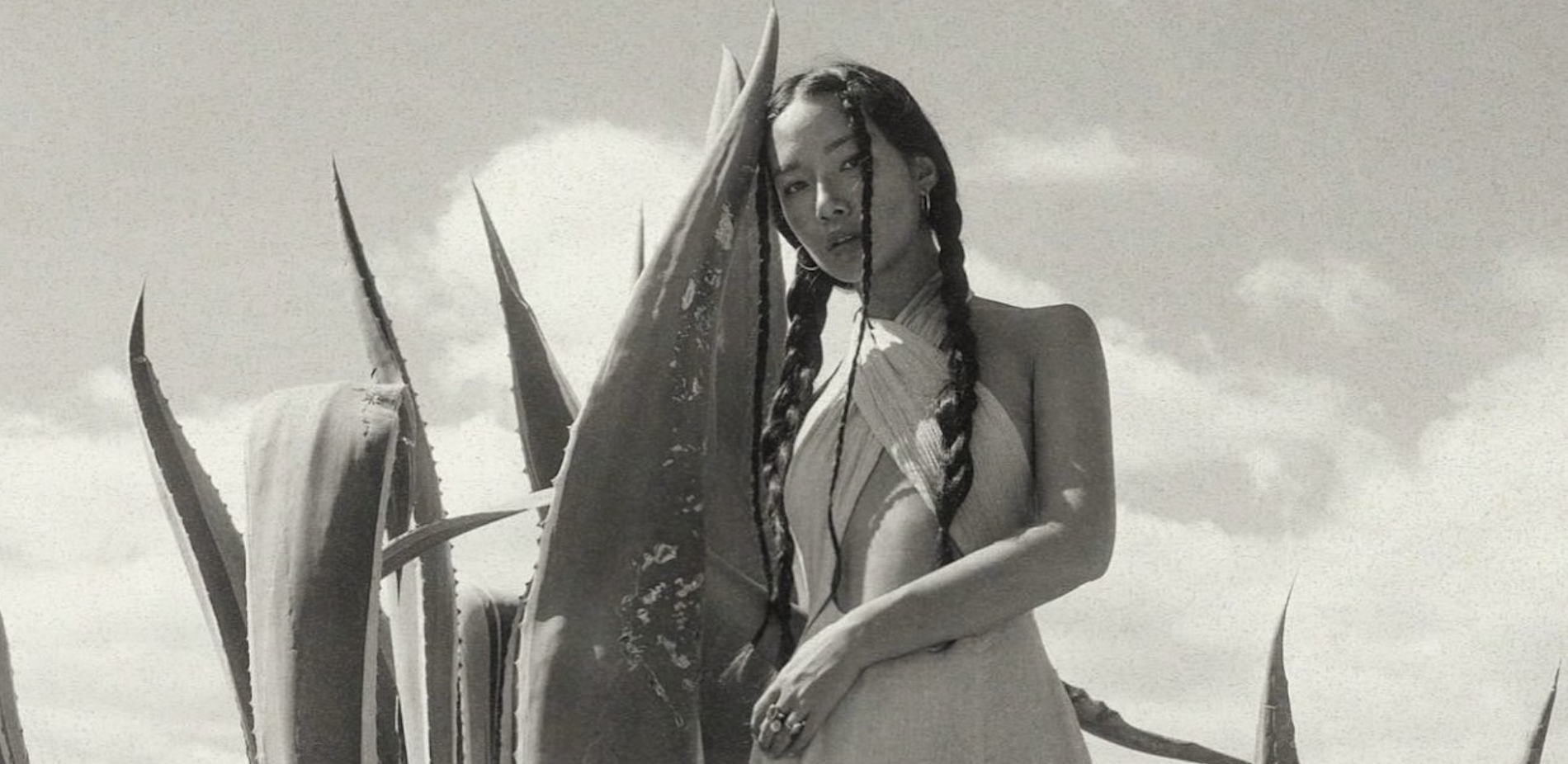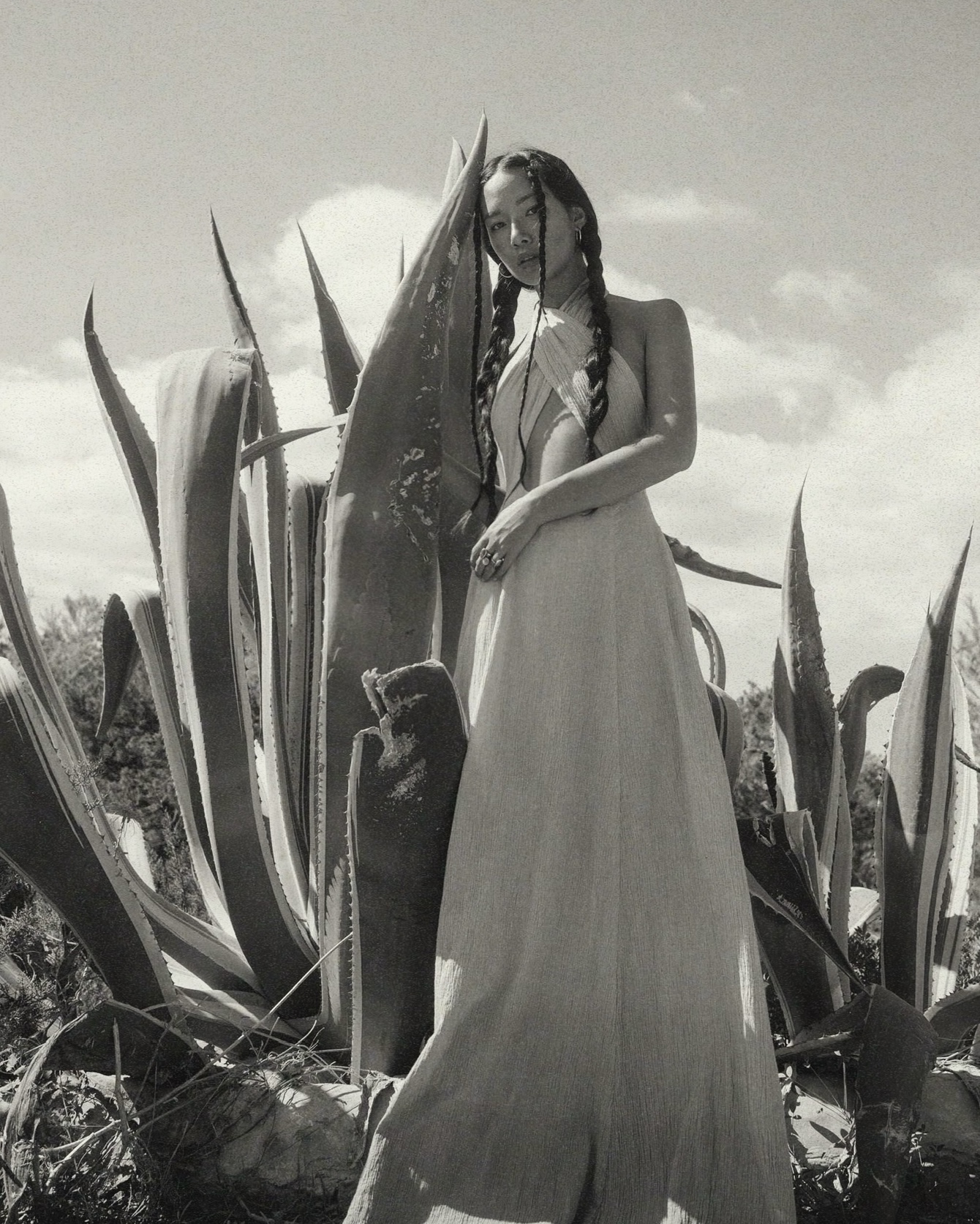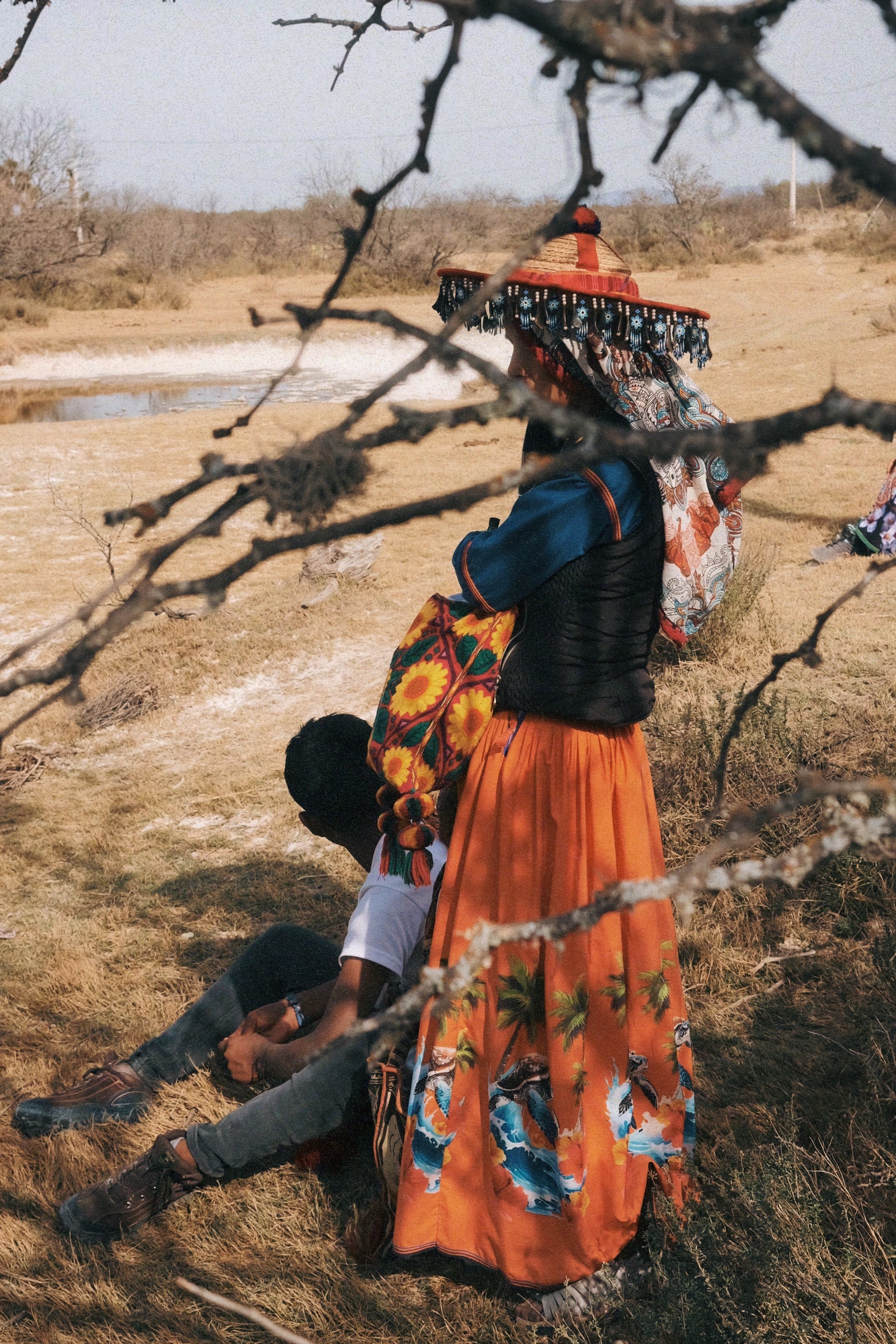MAYA POON ON RECIPROCITY, PLANT WISDOM AND CULTURAL STEWARDSHIP

Images: Maya Poon
Maya Poon is an artist, writer, and cultural explorer whose practice moves between ancestral knowledge, ecology, and contemporary storytelling. Over the years, Maya has spent time learning with Indigenous communities across different regions, building relationships rooted in respect, trust, and mutual exchange.
Her creative vision and work focus on amplifying cultural memory and ecological intelligence while challenging the ways these traditions are often extracted, romanticized, or commodified in modern wellness spaces. In this conversation, Maya shares insights from her experiences and offers tangible ways for all of us to practice deeper reciprocity with the cultures and communities that steward plant wisdom. Maya believes plant medicines, cultural memory, and ecosystems are intimately entangled in the healing of both the Earth and human consciousness.
Here is our conversation with Maya:
1. Let’s start at the root. How did your personal journey lead you into working with plant medicine, and how has it changed the way you understand nature?
Plant medicine for me is not only psychedelics – but all plants. All plants have the power of healing. Working with plant medicine means being intimate with a plant. Psychedelics are a powerful shortcut.
Every since i was a child, my mother would use plants as medicine. The more bitter it is, the better it is, she would say. My view of nature is that she is our Great Mother – all plants on Earth are medicine, we just need the intelligence to understand them.
Currently, my relationship with psychedelic plants only happens in ceremonies, not for play, nor for pleasure. I only attend when I feel a deep calling, and when it is served by an indigenous maestro whose communities have harvested the plant. We live in a time where we must protect our energies with great awareness.
2. You’ve spent real time learning with Indigenous communities. How have those experiences shaped your sense of reciprocity and responsibility when working with plants? Were there teachers or traditions that were especially pivotal for you?
In all indigenous communities, the offering comes before asking for a wish. Often, the offering comes without even a wish. Walking with indigenous communities allowed me to not only learn about reciprocity but gratitude. There is always more to be grateful for than we remember.
When I spent time in the protected land of the Arhuacos in the high mountains of Colombia, one thing that was undeniable was their gratitude. Every day, they would walk miles and miles to leave offerings and prayers to the Great Mother. It is so woven in their daily ritual that I wouldn't even call it a ritual, but something just within them. This gratitude for life on Earth.

3. Plant medicine and Indigenous practices are everywhere right now; often romanticized, sometimes sold back to us without any accountability. What ethical tensions do you see in this landscape, and how do you navigate them in your own work?
I feel that the majority of plant medicine retreats now are commercialized. They have been adapted for the foreigners – more luxurious, more comfortable, easier and without suffering. It is sad and invisible but little by little, this will lead to a change of relationship between an indigenous community and the plant. By adapting, modifying and commercializing an indigenous practice, is often how a loss of culture starts.
I live by one golden rule: when you want to experience plant medicine, have it served by someone whose lineage has been woven with the plant, someone who has harvested it himself, where the medicine has been grown in the wilderness of their home.
Second, if you have the luxury, do the effort and travel to the native land of the plant. Experience her in her natural habitat – where she grew and was harvested. Plants and spirits work in reciprocity and they will be grateful for your respect.
4. When you collaborate with Indigenous elders or communities, what personal protocols or values guide how you show up?
Listening is important when you collaborate with indigenous communities. As often, you will share different systems of thought – yet, there is so much to learn when we slow down, pause, and reflect. This is when there is a potential to grow and transform. A great opportunity to experience thinking differently.

5. Can you share a moment in nature that shifted something in you? Maybe around healing, belonging, or time itself?
A shifting moment within me – that rebalanced me into my being – occurred in the Amazon of Peru, when I was dieting a non psychedelic plant called Marusa with Shipibo elders. It’s a very delicate process as you need to be very clean to work with a non psychedelic plant. It will not do the work for you, you need to do the work first. Ayahuasca is only served at the end of the dieta to act as a marriage and activation between you and your plant. That was the reason why I decided to go – because of this delicateness, this honoring of fragile realms, this desire and humbleness of bowing down to the unknown and trusting that there is work happening even when you are not aware.
6. For people living in cities or feeling disconnected, what are some real, everyday ways to stay in relationship with nature and ancestral wisdom?
Less scrolling, more walking. Less information, more reflection. Less rushing, more pausing. Allow yourself to breathe and be inspired from the Source, less from other humans.

7. For emerging creators who want to work at the intersection of culture, ecology, and ancestral knowledge, what advice would you give for keeping integrity at the center? And looking ahead, what visions or projects are you calling into being?
My advice is 1. Always research, read and deepen your knowledge about topics you are curious about. Don’t just explore one source but many, go deep. 2. Wisdom is key. Challenge your instinct by trusting it entirely. Take time to reflect, craft your own path and philosophy. Listen to the wisdom of indigenous elders, they are the key carriers.
I believe we are at the edge of a big transformation. An easy sign to spot is the boiling chaos surrounding us today. Everything is crashing. This is the time where the volcano rises, and will leave the most fertile soil for new seeds to grow. We need to be ready for a new thought system – and for this we need to decolonize our way of thinking, of eating, of living – we need to decolonize and rewild all living things, including our heart. This is my path – to help rewild the soil and the soul, particularly the soul, as we are the ones that will craft the new soil.
YAWN joined together with Maya for the new Sporewear campaign because her work embodies the same values that inspired it: reciprocity, cultural preservation, and respect for the origins of plant wisdom. Through the launch of the campaign, we’re bringing awareness and raising funds for the Indigenous Medicine Conservation Fund (IMC.), which protects the lands, lineages, and communities that sustain these teachings.
Subscribe to get 15% off first order 🍄



